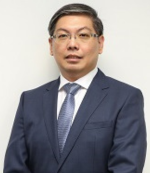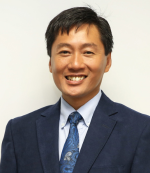Treatment of hearing loss depends on the underlying cause. Your ENT doctor will do a detailed evaluation of your hearing complaint and advise the most appropriate option based on the diagnosis and your needs.
The treatment offered may range from medications, simple clinic procedures, to surgery to remove tumours and treat infections, and implants to help with hearing. Treatments include but are not limited to:
- Aural clearance and ear wax removal
- Bone conduction device implantation
- Cochlear Implantation
- Eustachian tube dilation
- Intratympanic steroid injections
- Mastoidectomy (endoscopic / microscopic)
- Middle Ear Implant Surgery
- Myringotomy and tube insertion
- Myringoplasty / Tympanoplasty (ear drum repair)
- Ossicular reconstruction / Ossiculoplasty surgery
- Removal of ear foreign bodies
- Stapedotomy / Stapedectomy
In patients with hearing loss not reversible by, or not amenable to surgery, hearing rehabilitation in the form of hearing devices may be offered.
Conventional Hearing Aids
Digital, programmable and multi-channel behind-the-ear (BTE) hearing aids cater to a range of hearing losses from mild to profound. Various custom models, such as Completely-In-The-Canal (CIC), In-The-Canal (ITC) and In-The-Ear (ITE), utilise the natural ear shape to enhance hearing. These devices are designed to be unobtrusive and aesthetically pleasing.
Our audiologists provide a wide range of hearing aids and services. We offer tailored fitting for every individual of all ages and degrees of hearing loss.
Services
Bone Conduction Hearing Devices
In patients with conductive hearing loss, bone conduction hearing devices (BCHDs) provide an option for hearing rehabilitation. These devices bypass the external and middle ear to stimulate the inner ear directly via the skull bone. The hearing device is worn off the ear, keeping the ear canal open, making it suitable for patients with chronic ear discharge or wetness. These devices may be surgically implanted, improving the ease of use for patients.
Cochlear Implants
Cochlear implants are advanced electronic devices that restore hearing for individuals who experience severe to profound hearing loss. Unlike traditional hearing aids, they work by directly stimulating the auditory nerve. The system comprises an external processor and an internal surgically implanted component. Though the perceived sound differs from natural hearing, the brain learns to interpret these signals effectively. The implantation procedure is generally safe, and many recipients report significant improvements in their daily lives post-surgery.
For more information, refer here.
Auditory Verbal Therapy
Aural rehabilitation focuses on maximising the auditory function of individuals with hearing impairments to facilitate listening and spoken language acquisition. This is highly recommended for all, especially for children diagnosed with hearing loss, as the development of listening and speaking skills is not automatic following the fitting of hearing aids or cochlear implantation.
Therapy sessions are conducted weekly, or as recommended by our therapists. The caregiver attends each session with the child and learns various techniques to encourage the child to listen, react, respond and subsequently comprehend. The goal of each session is to equip caregivers with the skills necessary for daily interaction with the child. Sessions are tailored to the child's needs and typically involve play activities, including singing and reading. These activities aim to develop listening, language comprehension, language expression, speech, cognition and social, in accordance with the child's needs. These strategies are then shared with parents for continued application during play at home. The ultimate goal is to integrate each child, as fully as possible, into our listening society.
We work closely with caregivers and family members to ensure that the child's home environment supports an auditory-verbal lifestyle. Our aim is to provide families with the necessary education, guidance, advocacy and support. Regular home and school visits are conducted to monitor the child's integration into the listening world. We also maintain close contact with teachers, principals and other school staff. This therapy is also suitable for adults who have experienced hearing loss since childhood wish to improve their listening and speaking skills after being fitted with current amplification devices (hearing aids or cochlear implants) as recommended by doctors and audiologists.



-(150x173px).png?sfvrsn=277d0fe7_1/)


-(150x173px).png?sfvrsn=c00e3ef0_1/dr-jeremy-chee-(2025)-(150x173px).png)
















